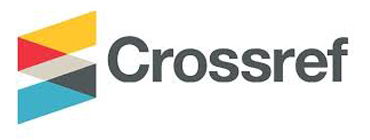EFL TEACHER'S PEDAGOGICAL BELIEFS IN TEACHING AT AN INDONESIAN UNIVERSITY
Abstract
Teachers should have pedagogical beliefs in their studies, which function as a filter and guidance for their decision-making and teaching methods in the teaching-learning process. To promote an active and meaningful learning experience, Indonesian curriculum policy incorporated principles that place students at the center of the learning process. However, most of the time, teachers are in charge of the teaching-learning process and become the center of the learning process, while students are passive recipients of knowledge.This study was conducted to find out teachers' pedagogical beliefs in teaching at university. The present study was a basic interpretative qualitative study with five English teachers as the participants, and the data were collected through observation, questionnaire, and field notes. The data were analysed by data reduction, data display, and concluding. The study results showed that the teachers believed that teaching is the process of transmitting and constructing knowledge. This study implied that the EFL teachers believed and implemented a student-centered approach in the teaching-learning process.
Full Text:
PDFReferences
Alwasilah, A. C. (2009). Pokoknya kualitatif. Jakarta: Dunia Pustaka Jaya.
Abdi, H., & Asadi, B. (2015). A Synopsis of Researches on Teachers’ and Students’ Beliefs about Language Learning. International Journal on Studies in English Language and Literature (IJSELL), 3(4), 104-114.
Calderhead, J. (1996). Teachers: beliefs and knowledge. In D. C. Berliner, & R. C. Calfee (Eds.), Handbook of Educational Psychology (pp. 709-725). New York: Macmillan.
Clark, C. M. & Peterson, P. L. (1986). Teachers' thought processes. In M. C. Wittrock (Ed.), Handbook of Research on Teaching (pp. 255-296). New York: Macmillan.
Good, T. L. (1987). Two decades of research on teacher expectations: Findings and future directions. Journal of Teacher Education, 38(4), 32-47.
Harvey, O. (1986). Beliefs systems and attitudes toward the death penalty and other punishments. Journal of Personality, 54, 143-159.
Johnson, K. (2001). Learning about language: An introduction to foreign language learning and teaching. Harlow, England: Pearson Education Limited.
Khader, F. R. (2012). Teachers’ pedagogical beliefs and actual classroom practices in social studies instruction. American International Journal of Contemporary Research, 2(1), 73-92.
Klein, P. D. (1996). Preservice teachers' beliefs about learning and knowledge. Alberta Journal of Education Research, 42(4), 361-377.
Larenas, C. D., Hernandez, P. A., & Navarrete, M. O. (2015). A Case Study on EFL Teachers’ Beliefs About the Teaching and Learning of English in Public Education. Porta linguarum, 23, 171-186.
Loughran, J. (2006). Developing a pedagogy of teacher education: Understanding teaching and learning about teaching. New York: Routledge.
Malik, R. S., & Hamied, F. A. (2014). Research methods: A guide for first time researchers. Bandung: UPI Press.
Munby, H. (1982). The place of teachers' beliefs in research on teacher thinking and decision making, and an alternative methodology. Instructional Science, 11, 201-225.
Pajares, F. (1992). Teachers’ beliefs and educational research: Cleaning up a messy construct. Review of educational research, 62, 307-332.
Prawat, R. S. (1992). Teachers' Beliefs about teaching and learning: A constructivist perspective. American Journal of Education, 100(3), 354-395.
RISTEKDIKTI. (2016). Panduan penyusunan kurikulum pendidikan tinggi (2nd ed.). Jakarta: Direktorat Jenderal Pembelajaran dan Kemahasiswaan Kementerian Riset Teknologi dan Pendidikan Tinggi.
Staub, F. C. & Stern, E. (2002). The nature of teachers’ pedagogical content beliefs matters for students’ achievement gains: quasi-experimental evidence from elementary mathematics. Journal of Educational Psychology, 94(2), 344–355.
TALIS. (2009). Creating effective teaching and learning environments. OECD. Retrieved from www.oecd.org/berlin/43541655.
Uddin, M. E. (2014). Teachers’ pedagogical belief and its reflection on the practice in teaching writing in EFL tertiary context in Bangladesh. Journal of Education and Practice, 5(29), 116-129.
Wong, A. K., Chan, K-W., & Lai, P-Y. (2009). Revisiting the relationships of epistemic beliefs and conceptions about teaching and learning of pre-service teachers in Hong Kong. The Asia-Pacific Education Researche, 18(1), 1-19.
Woods, D. (1996). Teacher cognition in language teaching: Beliefs, decision-making and classroom practices. Cambridge, UK: Cambridge University Press.
DOI: http://dx.doi.org/10.30829/tar.v28i2.1119
Refbacks
- There are currently no refbacks.

Jurnal Tarbiyah by UIN Sumatera Utara Medan is licensed under a Creative Commons Attribution-NonCommercial-ShareAlike 4.0 International License.
Based on a work at http://jurnaltarbiyah.uinsu.ac.id/index.php/tarbiyah.
Permissions beyond the scope of this license may be available at http://jurnaltarbiyah.uinsu.ac.id/index.php/tarbiyah/about/submissions#copyrightNotice.
















